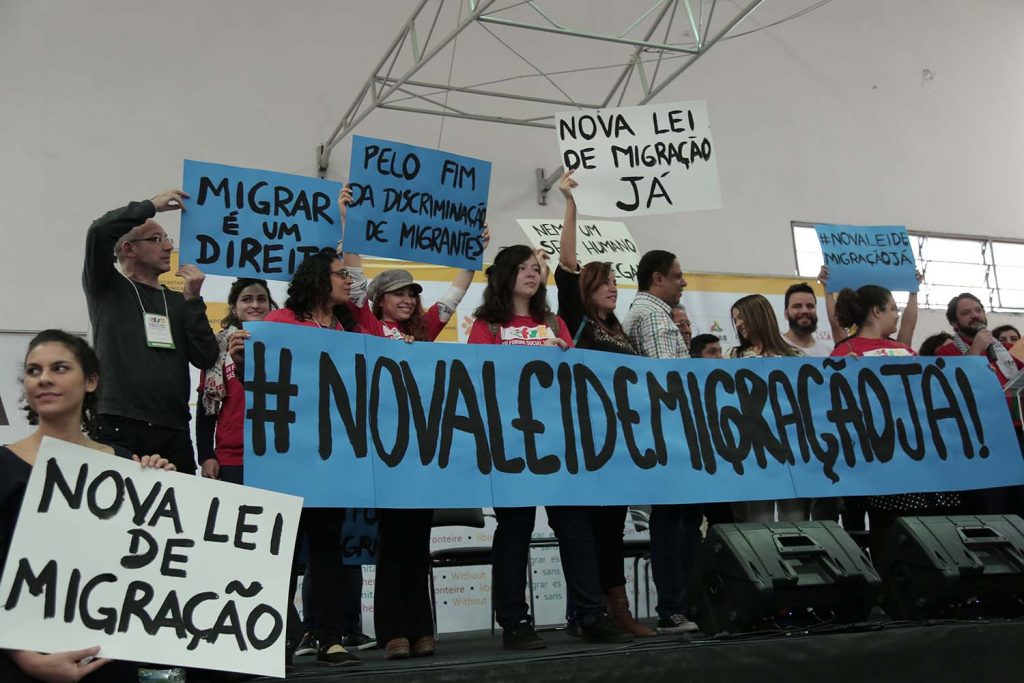Migration and asylum
 Photo taken at the University Zumbi dos Palmares, on 10/07/2016 in São Paulo (SP).
Photo taken at the University Zumbi dos Palmares, on 10/07/2016 in São Paulo (SP).
In recent years, worsening internal conflicts and the economic crisis have intensified migration flows. And Brazil, although it is not a preferred destination, also faces the challenge of taking in migrants and refugees from various parts of the world, in particular Venezuelans, Haitians, Senegalese, Syrians, Bengalis and Nigerians – nationalities with the most applications for refugee status in the country.
This situation prompted a reassessment of Brazilian immigration legislation, which until just a few years ago was based on the Foreigner Act, a relic of the military dictatorship that viewed migration as a matter of national security.
In 2017, the National Congress approved the New Migration Law (Law No. 13,445/2017), which was prepared with broad public participation and which considers migrants as rights-holders. The law was drafted under the principles of non-discrimination and non-criminalization, thereby respecting the Constitution of 1988.
In partnership with other organizations, Conectas participated actively in the formulation of the law, providing technical and legal insights to lawmakers, keeping track of debates and public hearings, and mobilizing public opinion through the most current discussions on the topic of migration in multilateral forums.
The challenge right now is to enforce the letter of the law to enable its proper application, denouncing violations and ensuring that migrants and refugees have access to rights, humanitarian asylum and integration that permits the full rights of citizenship in Brazilian society.


